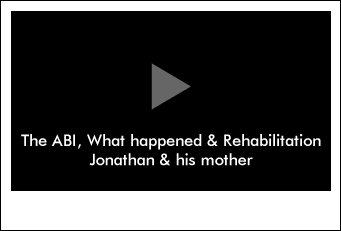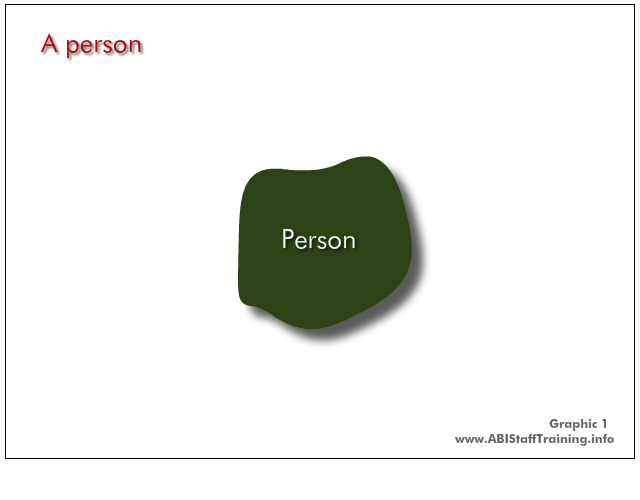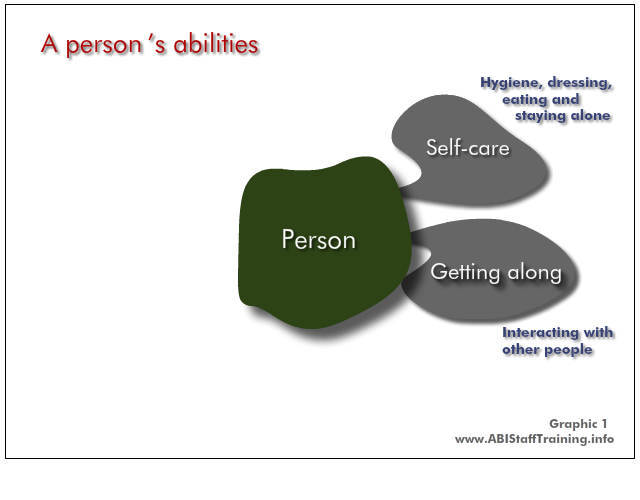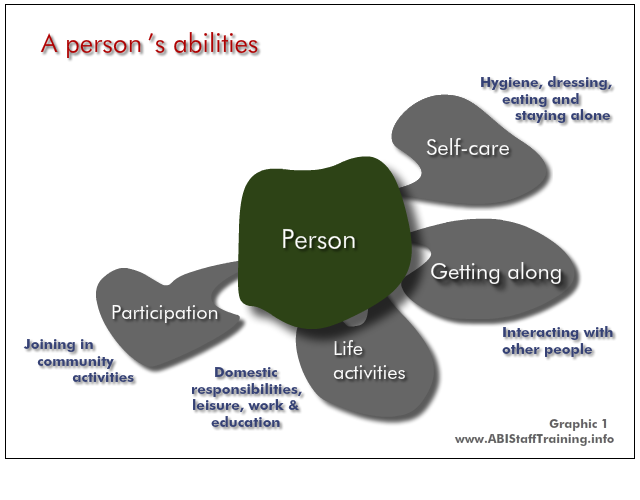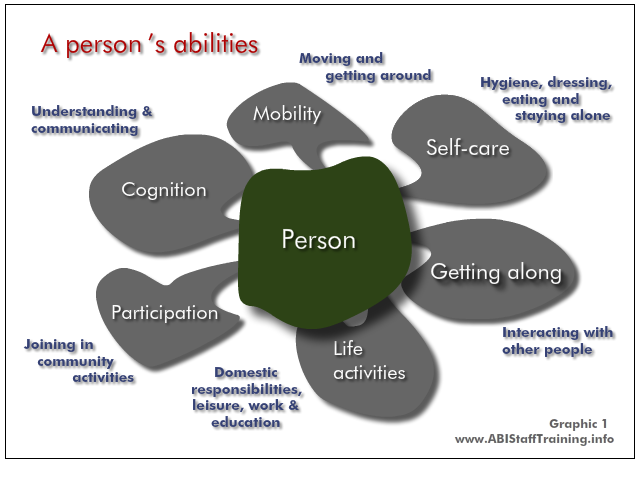- SELF STUDY MODULES
- 1. Intro to TBI
- 2. Communication
- 3. Skills for independence
- 4. Cognitive changes
- 5. Behaviour changes
- 6. Sexuality
- 7. Case management (BIR)
- 8. No longer available
- 9. Mobility & motor control
- 10. Mental health & TBI:
an introduction - 11. Mental health problems
and TBI: diagnosis
& management - 12. Working with Families
after Traumatic Injury:
An Introduction - 13. Goal setting
- 12.0 Aims
- 12.0A Take the PRE-Test
- 12.1 Why is working with families important
- 12.2 What is the adjustment experience for families
- a) The journey
- b) The challenges
- 12.3 Principles and skills
- a) Partnering
- b) Whole of family
- c) Family reactions
- d) Respect
- e) Empowering
- 12.4 When to get help
- 12.5 Take home messages
- 12.6 Resources
- 12.7 Take the POST-Test
12.2b The adjustment experience: The challenges
- i) Angela's
challenges Video Q - ii) Physical vs
Cognitive injury - iii) A person's
abilities - iv) The support
families provide
i) A family's experience (7 mins) - Angela's challenges
Angela is the mother of Steven. When Steven was 16 years old he was involved in a motor vehicle accident and sustained a traumatic brain injury.
The video may take a few moments to load.
As you watch the video note down Angela's challenges?
Finding a routine
The hidden side of cognitive disability
Adjusting to change and loss of old life
Needing to find someone to debrief with
Feeling alone and isolated
Uncertainty of how to cope
Focus being on person with injury
Discharge to home process
Wanting longer in rehabilitation
Friends not understanding
Injury affecting family as a whole
Adjusting to life post injury
Dependency of patient
Caring for self
Adjustment to carer role and new life
Loss of normality
Change in work
Lack of advice
Planning required to go away
Misunderstandings from others
Changes from hospital to home – not having safety of hospital surrounds
Lack of understanding from outside
Finding time with partner
ii) Physical vs Cognitive injury
In the three families in the videos:
Jonathan has a traumatic brain injury.
Angela's son Stephen has a traumatic brain injury.
Cheryl's husband has a spinal cord injury
The experiences of families where a member has had a traumatic brain injury and where a member has had a spinal column injury have much in common. There are also some differences.
The following table highlights some of the different experiences of physical and cognitive injury.
Physical |
Cognitive |
|
 |
 |
|
Challenges |
|
|
iii) A person's abilities
When thinking about the adjustment experience of families after traumatic injury and the person with the injury is is useful to consider what a person's abilities include. The injury will have impacted on some of these abilities.
The graphic below shows a typical person's abilities.
When there has been a physical or cognitive injury the person may need support to achieve what they previously did using their own abilities.
These are people's abilities. A TBI or SCI will impact on these abilities.
SLIDES:
To pause: Hover mouse over slide. To continue: move mouse off slide.
To go to a specific slide: Click on slide numbers below.
iv) What kind of support do families provide?
- Emotional support
- Practical support
- Supervision and prompting
- Encouraging the person with the injury
- Organisation
- Advocacy
- Networking
- Social and financial support
- Communication
- Providing knowledge to staff

